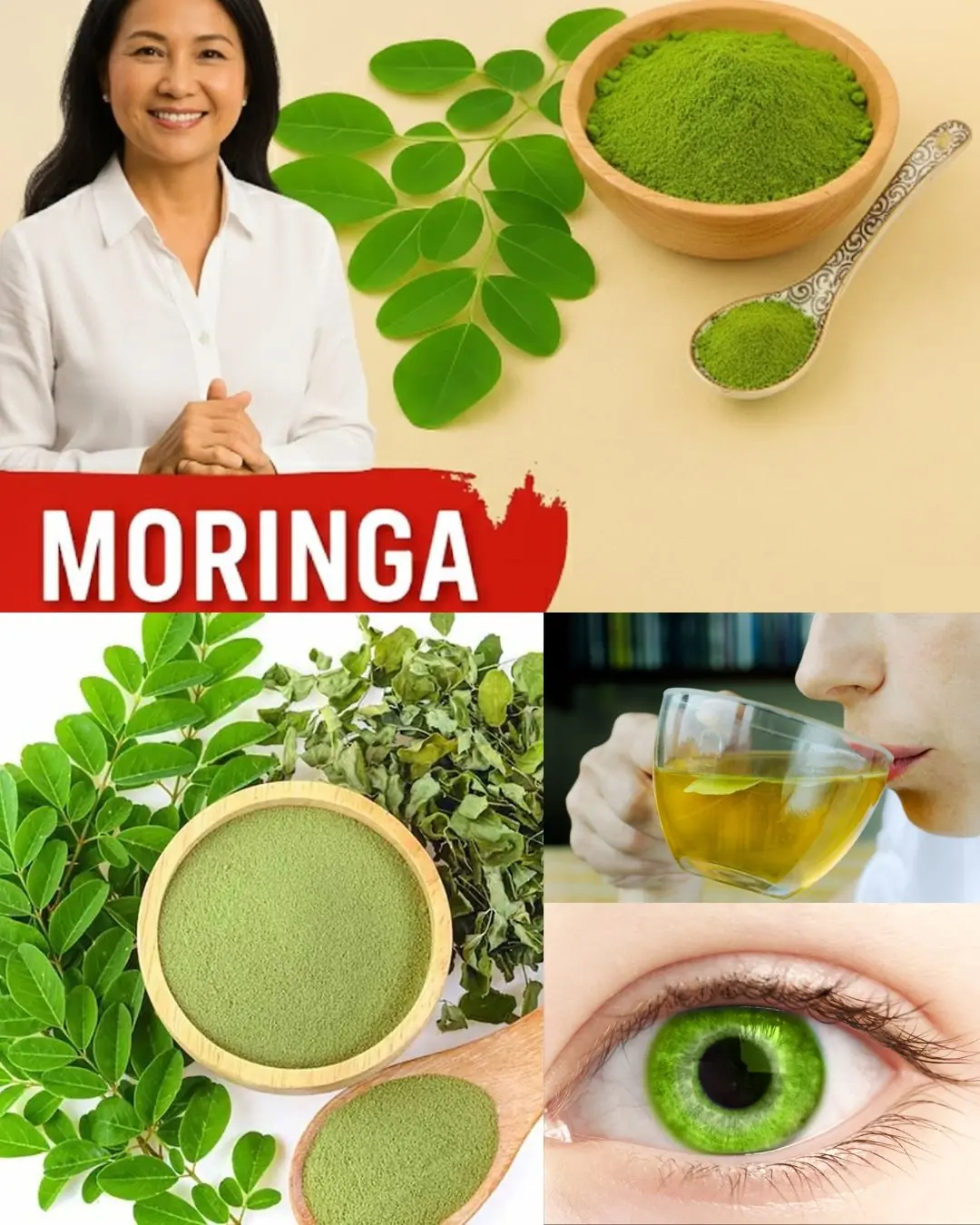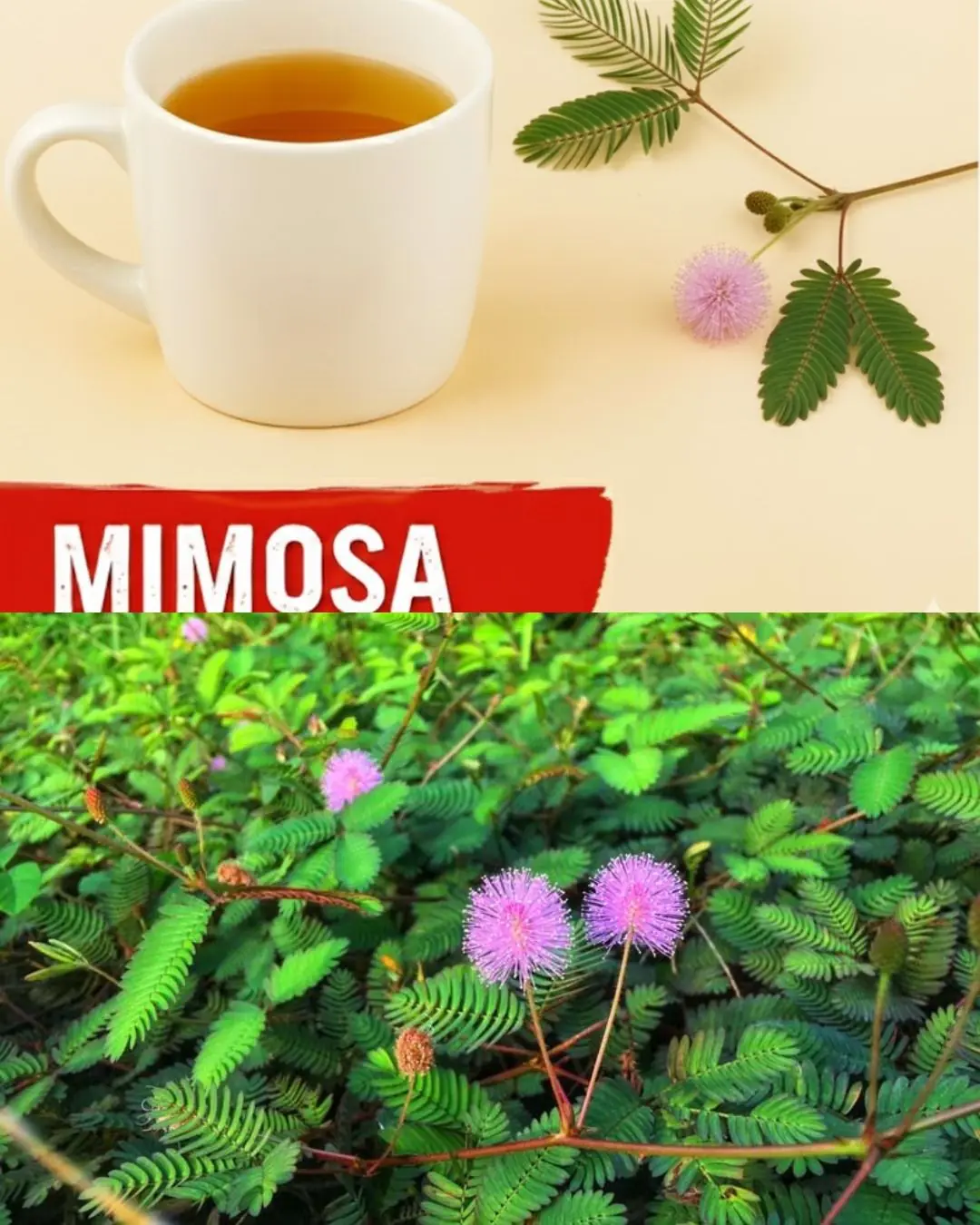
The Hidden Power of Moringa: Benefits for Health and Vision
Moringa, often referred to as the “tree of life,” has earned global praise from nutritionists, wellness experts, and medical practitioners for its extraordinary nutritional and medicinal qualities. Native to India and now cultivated around the world, this resilient plant contains an impressive range of nutrients that support nearly every system in the body — especially the eyes.
In this article, we’ll take a closer look at what makes moringa a true superfood, how it supports eye health, and simple ways to incorporate it into your daily routine. As always, any concerns about eye conditions or supplementation should be discussed with a healthcare professional.

Why Moringa Is So Nutrient-Dense
Every part of the moringa tree is valuable, but the leaves and seeds are particularly rich in essential vitamins and minerals. Moringa contains:
-
Vitamin A for vision and immune function
-
Vitamin C for antioxidant protection
-
Iron, which supports energy and prevents deficiency
-
Calcium for strong bones
-
Protein, making it a valuable nutrient source for plant-based diets
-
Antioxidants, including quercetin, chlorogenic acid, and beta-carotene
These nutrients help the body combat oxidative stress, maintain healthy tissues, and support overall vitality. Moringa can be consumed fresh, dried, powdered, steeped as tea, or taken in capsules, making it easy to adapt to any lifestyle.
How Moringa Supports Eye Health
1. Rich in Vitamin A
Vitamin A is one of the most essential nutrients for eye health. It supports:
-
Low-light and night vision
-
Cornea protection
-
Prevention of night blindness
-
Reduction in age-related eye dryness
Because moringa leaves are naturally high in beta-carotene — a precursor to vitamin A — they help support and maintain healthy vision, especially for those whose diets lack sufficient leafy greens or colorful vegetables.
2. Antioxidant Protection
Oxidative stress is a major contributor to eye disorders such as:
-
Cataracts
-
Macular degeneration
-
Retinal damage
Moringa’s abundant antioxidants neutralize harmful free radicals that damage eye cells over time. This protective effect helps slow age-related degeneration and maintain clearer, sharper vision as you age.
3. Anti-Inflammatory Properties
Inflammation plays a role in many eye conditions, including irritation, swelling, and discomfort. The natural anti-inflammatory compounds in moringa may help:
-
Reduce puffiness around the eyes
-
Soothe mild irritation
-
Support overall ocular comfort
While moringa isn’t a medical treatment for eye disease, its nutrients can complement a balanced, eye-supportive diet.
Easy and Delicious Moringa Recipes
Adding moringa to your meals is simple — and surprisingly tasty. Here are two nutritious recipes to try:
1. Energizing Moringa Smoothie
Ingredients:
-
1 banana
-
1 cup fresh spinach
-
1 tablespoon moringa powder
-
1 cup water or plant-based milk
-
Honey (optional)
Directions:
Blend all ingredients until creamy. This powerful smoothie delivers vitamins, antioxidants, and a gentle natural energy boost to start the day.
2. Fresh Green Salad with Moringa Leaves
Ingredients:
-
2 cups lettuce or mixed greens
-
1 cup fresh moringa leaves
-
Cherry tomatoes
-
Sliced cucumber
-
Olive oil and lemon juice
Directions:
Combine ingredients in a bowl. Drizzle with olive oil and lemon juice. Toss well and enjoy a refreshing, nutrient-rich meal.
Precautions and When to Consult a Doctor
Even with its many benefits, moringa isn’t suitable for everyone.
-
Pregnant women: Certain parts of the moringa plant may not be recommended, so consultation with a doctor is essential.
-
Individuals on medication: Moringa may interact with medications related to blood pressure, thyroid function, or diabetes.
-
People with chronic conditions: Always consult a healthcare provider before using moringa as a supplement.
Moderation is key — more is not always better, especially when it comes to potent herbal plants.
Conclusion
Moringa is truly one of nature’s most impressive gifts. From its high nutrient density to its anti-inflammatory and antioxidant benefits, this remarkable plant supports overall well-being and offers meaningful advantages for eye health. Whether added to smoothies, salads, or taken in supplement form, moringa can be a powerful addition to a health-conscious lifestyle.
If you’re looking for a natural way to nourish your eyes, strengthen your immune system, and boost your energy, moringa is a wonderful place to start — just be sure to speak with a healthcare professional before making significant changes to your diet or supplement routine.
Unlock the hidden power of moringa and take one step closer to brighter eyes and better health today.
News in the same category


25 Incredible Benefits of Stork’s-Bill (Erodium cicutarium)

Dwarf Mallow (Malva neglecta): A Powerhouse of Health Benefits and Uses

The Hidden Power of Goosegrass

Goldenberry Power: 20 Benefits of Physalis peruviana and How to Use It at Home

Red Clover: 15 Amazing Benefits and How to Use This Healing Herb

Plantago Lanceolata: The Wild Plant That Heals Almost Everything

The Hidden Healing of Fig Leaves: Natural Support for Diabetes, Digestion, and More

Achyranthes aspera: The Roadside Herb That Cleanses, Heals, and Protects

The Easiest Way to Make Coconut Oil at Home

Unlocking the Benefits of Hanging an Overripe Banana in Your Garden

🦶 5 Natural Remedies for Cracked Heels

🌿 Natural Remedies to Strengthen Your Nails

Discover the Miraculous Benefits of Moringa

The Healing Power of Mimosa Pudica: 10 Health Benefits and How to Use This Amazing Plant

The Hidden Healing Power of Papaya Leaves

Why You Should Put Mullein Leaves on the Soles of Your Feet

30 Powerful Reasons You Should Stop Ignoring Purslane

7 Benefits of Corn Silk and How to Use It
News Post

Kirsty Gallacher says brain tumour is 'growing very fast' in worrying health update

Strictly’s George Clarke supported after heartbreaking confession ahead of live show: ‘It’s hard’

Lola Petticrew was in ‘revolutionary’ drama Say Nothing before Trespasses – and it has an impressive Rotten Tomatoes score

The Lip Color You Pick Reveals What Kind of Woman You Are

EVERYTHING TOM FELTON HAS SAID ABOUT JK ROWLING CONTROVERSY AS HE RETURNS TO HARRY POTTER

Doctors reveal that eating guava causes...

Why Your Hard-Boiled Eggs Have That Weird Green Ring

Big Brother kicks out two stars in cutthroat move days before final

Don’t Toss That Tuna Can

Yeast & Coffee Erase All Wrinkles in 3 Minutes – Even at 70

KELLY BROOK ADMITS WHY SHE SPLIT UP FROM EX-FIANCÉ JASON STATHAM AFTER SEVEN-YEAR RELATIONSHIP

Glow Like Never Before: The Banana and Carrot Face Mask That Defies Aging 🌟

BBC Unveils Daytime Shake-Up with New Shows Fronted by Vernon Kay and Ronan Keating 📺

The shower head is easily clogged after long use. This way, the dirt will drain away by itself and replace it with a new one

🎭 Emmerdale 'Too Dark' Debate: Viewer Poll Reveals Audience is Sharply Divided

The shocking truth about vitamins and blood clots in your legs

BBC Orders Immediate Lockdown for Celebrity Race Across the World Contestants Due to Violent Guatemala Uprising

🔥 Gordon Ramsay Delivers "Brutal Swipe" at Weight-Loss Jab Users, Refusing to Alter Menus

MAFS UK fans spot telling clue Davide and Keye have split
